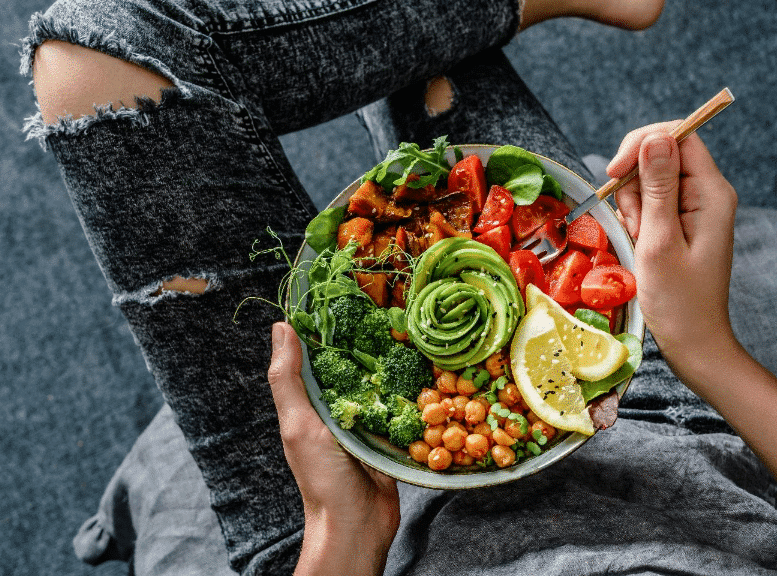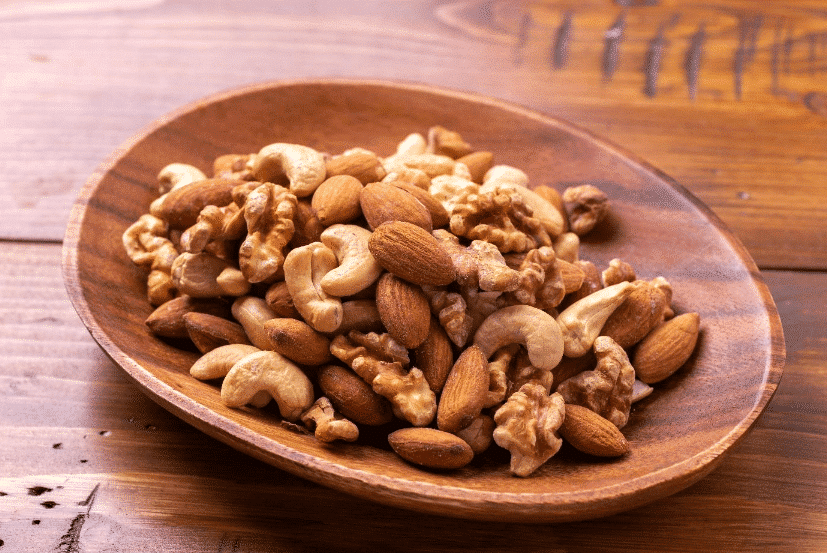Vegan diet without nutrient deficiencies – This is how it works
Vegans are often faced with the question of whether their diet is balanced enough. Many have reservations and fear that they will suffer nutrient deficiencies if they do without animal products. Contrary to the still widespread prejudices, vegan cuisine is indeed varied and balanced.
When you start veganism, you will first have to adjust your food choices in your daily habits. By paying attention to what you eat, the conscious choice of products will also ensure a better intake of nutrients. If necessary, micronutrients can also be taken in the form of supplements. So it comes down to finding the right mix in a good nutrition plan and, additionally, nutritional supplements.

How to recognise deficiencies
If you are following a vegan diet, you will need to pay special attention to what you ingest in terms of nutrition, especially at the beginning of the diet change. Therefore, it is important to know beforehand exactly what your body needs to be healthy and fully functional. What is good to take into account is that a deficiency of a particular nutrient does not manifest itself immediately, but only after a certain delay. This is due to your body’s own storage. For example, it can store certain vitamins in the liver or even in fat cells and make them available in case of a short-term deficiency. However, if the supply of nutrients is not replenished regularly, deficiency symptoms occur. The following signs may indicate malnutrition:
- You are excessively tired and exhausted
- You suffer from dizziness
- Your stamina decreases dramatically
- You have unusual hunger or almost no hunger at all
- Hair and fingernails barely grow or are brittle
Which nutrients are particularly important?
The decision to go vegan is often made for ethical reasons. However, it is not always a matter of conscience, as forgoing animal foods can also help you lose weight or live a healthier lifestyle in general. However, if you want to live vegan, you should not only cut out the animal products you have been consuming so far, but educate yourself about other plant-based foods or alternative sources of nutrients such as dietary supplements. If you have been vegan for a while and have not been paying close attention to your nutrient intake, you can have your blood levels checked by a doctor.

Proteins
Proteins are important building blocks of our body. They enable the growth of bones and muscles, as well as the maintenance of already formed substance. An adult human needs 20 of these amino acids for normal metabolism, and some of them must be taken in sufficient quantities through diet. A rule of thumb is that you should take in about 0.8 grams per day per kilogram of your own body weight. If you exercise intensively, the recommended amount increases. Here, too, vegans are at a prima facie disadvantage, as many protein sources are of animal origin. But instead of eggs, meat and milk, you can meet your needs with nuts, cereals (whole grains) or soy-based products. Since these protein sources are cheap and readily available, additional supplements are usually not necessary. Legumes are rich in protein and are an ideal source of protein for a vegan diet.
Vitamins
A healthy and therefore deficit-free diet must naturally contain vitamins. Vitamin D is one of the particularly critical representatives. It is important for the immune system and also for proper muscle function, but is only produced by the body when the skin is sufficiently exposed to sunlight. However, this fascinating process of “synthesis” is not a reliable source for vitamin D needs, especially in winter. Fortunately, vitamin D can also be obtained from food. Unfortunately, this almost exclusively involves animal foods such as fish. To rule out deficiency in a vegan diet, take vitamin D supplements during the cold season. However, certain limits should be observed here, as an oversupply is not good for the body either. If necessary, it is worth talking to your GP to determine your individual needs.
The situation is somewhat different with B vitamins. While vegans are well supplied with vitamin B2 through their plant-based diet, vitamin B12 must be taken in the form of appropriate supplements, as it occurs almost exclusively in animal-based foods.
Minerals and trace elements
Minerals and trace elements include calcium, iron, iodine, zinc and selenium. Calcium accounts for most of the requirement. It is very important for healthy bones and teeth. Making sure you get enough calcium is relatively easy. It is found in legumes, many vegetables and even in mineral water. If you are constantly exhausted and tired, you may have an iron deficiency.
This relatively common deficiency affects people regardless of whether they follow an omnivorous, vegetarian or vegan diet. Besides sufficient intake, the right combination with other nutrients, especially vitamin C, is also important. Iodine deficiency is quite rare these days. Nevertheless, the use of iodised table salt is recommended. Zinc, on the other hand, is best obtained from whole grains and legumes. Selenium is the least important source. Good sources of selenium are mushrooms, nuts and vegetables.
Omega 3 fatty acids
For both vegans and non-vegans, the targeted intake of omega 3 fatty acids is important. These are polyunsaturated fatty acids, only a small proportion of which the human body can produce itself. Therefore, to meet its needs and prevent a deficiency of omega 3 fatty acids, they must be supplied through the diet. They are particularly useful for maintaining healthy heart and brain function. A popular source of omega 3 is fish. Since this is not an animal product in a vegan diet, most dietary supplements are not suitable because they contain fish or krill oil. However, there are now vegan supplements that guarantee a sufficient and consistent intake of omega 3.
Our vegan algae oil capsules provide so much of the necessary fatty acids that only one capsule needs to be taken instead of the usual two. In addition, compared to fish oil, algae oil protects the ocean ecosystem.